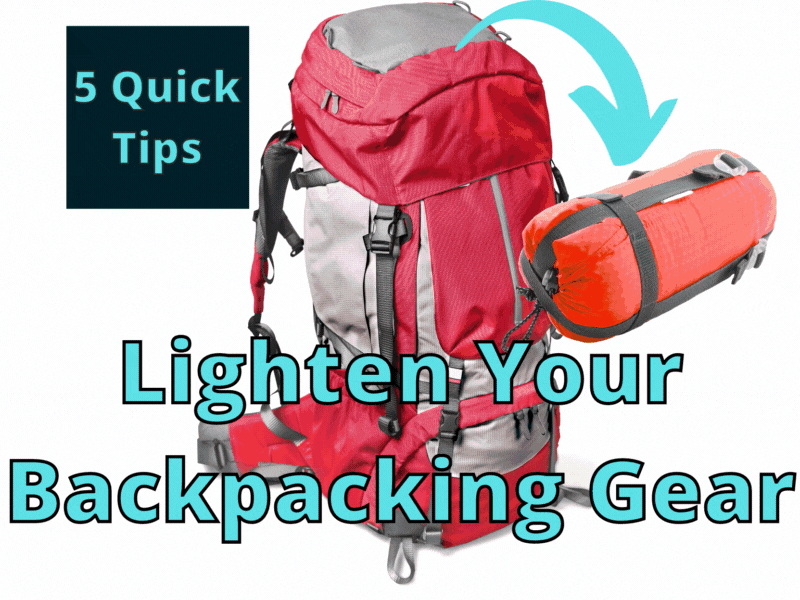Nearly all of us are familiar with hiking – the routes, the gear, the weather, the blisters. Whether it’s for personal achievement, a fun day out with friends or you’ve been dragged up a mountain by your other half, having the right gear makes a huge difference when it comes to your experience on the trail.
Reducing your gear weight can make a big difference for some. Consider substituting all your heaviest gear for something lighter or not bringing it if it’s not essential. Think about your comfort as well and don’t get rid of too much. Here are 5 quick tips:
- Go Through Your Packing List Several Times – We often pack things we never use, so triple-check if you will really need it.
- Buy Lighter Gear – If your hiking a long distance it makes sense to spend money on light gear for comfort and less stress on your body.
- Keep Your First Aid Kit Simple – Pick and choose only the items that you need and pack those.
- Organize Things To Fit in A Smaller Backpack – If it’s in a bulky package place it in a plastic zip-lock bag so you can fit it in tighter spaces.
- Use Multi-Purpose Items – Hiking poles can be used for some tents. Use your jacket as a pillow. See what else can serve more than one purpose.
If you’ve ever watched documentaries about hiking, or YouTube insights about the world’s ‘best hikers’, you’ll know that the one thing nearly all of them are so keen on is how to downsize your gear for hiking. You’ll need to decide which is best, getting rid of a little or going to extremes to take away extra weight.
Tips to Downsize Your Gear
Although professional hikers and well-seasoned travelers might benefit from taking extreme steps, most of you really don’t need to. For the Average Joe, here are a few tips to help you pack lightweight:
1. Go Through Your Packing List Several Times
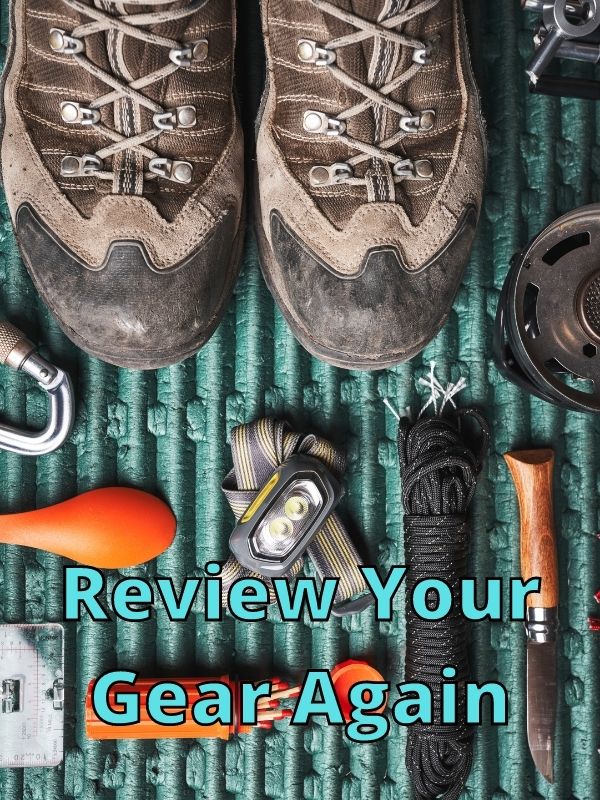
The best way to plan out what you want or need to bring is to evaluate your current packing list. Find out what you usually bring away with you, and then slowly trim from it. Pretend you’re backing for an ordinary holiday, and every time you go to put something in your pack, consider whether you could do without it this time.
(Check out this article for a list of backpacking items you can refer to and what thing you might want to do to prepare for your next backing trip.)
Do you even wear that shirt? Do you need that many socks or pants? Can’t you buy that over there if need be? Rather than cutting out chunks in one go, slowly trim down your item list to the bare essentials.
One of the most effective methods for this is to lay all of your items out in front of you, on your floor, or on your bed. This way you’ll get a good look at all the things you take with you, and it’ll put in perspective what matters and what doesn’t.
2. Buy Lighter Gear
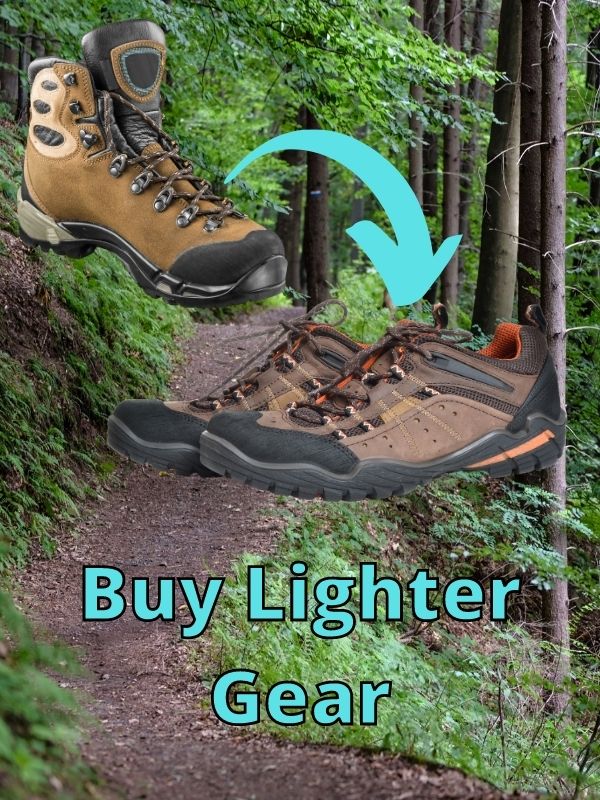
So, if you’ve removed all the gear you don’t need, and minimized/reduced the gear that you’re bringing with you, the next step to a lighter pack is to swap the remaining gear you have for ultralight alternatives. Swapping a few key items – clothes, accessories, or the backpack itself – can make a huge difference to the overall weight.
Although the high-end ultralight gear won’t come with a low-price tag, there are cheaper alternatives that will strip off a lot of the weight, perhaps without the added style factor or extra versatility.
Things such as tents, sleeping bags, bottles, shoes, boots, and coats tend to carry a lot of weight. Swapping a few – or even all – of these items for lightweight alternatives will make a world of difference. Not only that, but if you get ‘pack down’ versions too, you’ll save space in your pack as well as weight.
Just be sure that any lightweight stuff you get is still suitable (i.e. warm enough, waterproof, comfortable, etc.)
3. Keep Your First Aid Kit Simple
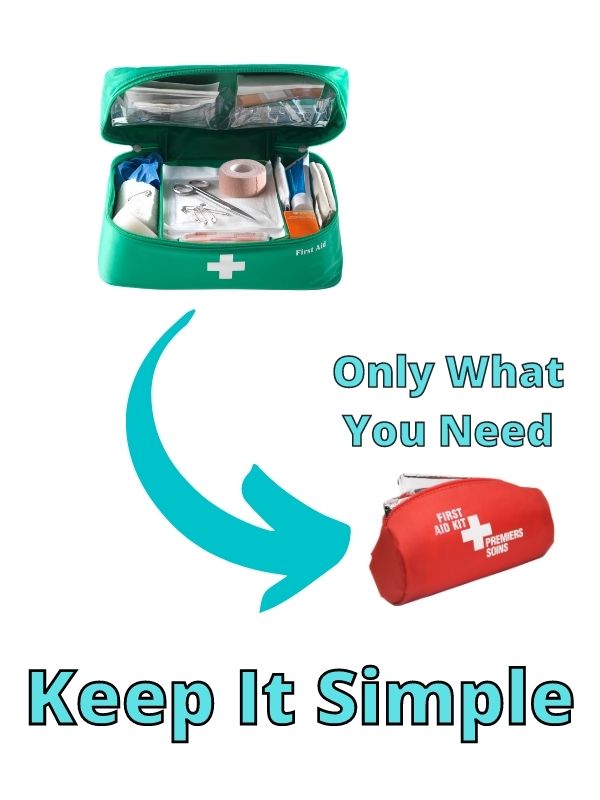
Of course, first aid kits are crucial when going pretty much anywhere. But, although this might sound odd, it’s possible to go overkill on this, especially when looking to pack light.
Things like plasters, bandages, and antibacterial wipes are a must in most places, but unless you’re heading out into the wilderness, the chances are that you won’t need tweezers, a stitching kit, or some kind of anesthetic.
Depending on where you’re going, the ecosystem, food, and season, you might want to add a few more things than the bare minimum. But if you’re bringing a first aid kit with you, look over each item and decide if it’s really crucial.
4. Organize Things To Fit in A Smaller Backpack
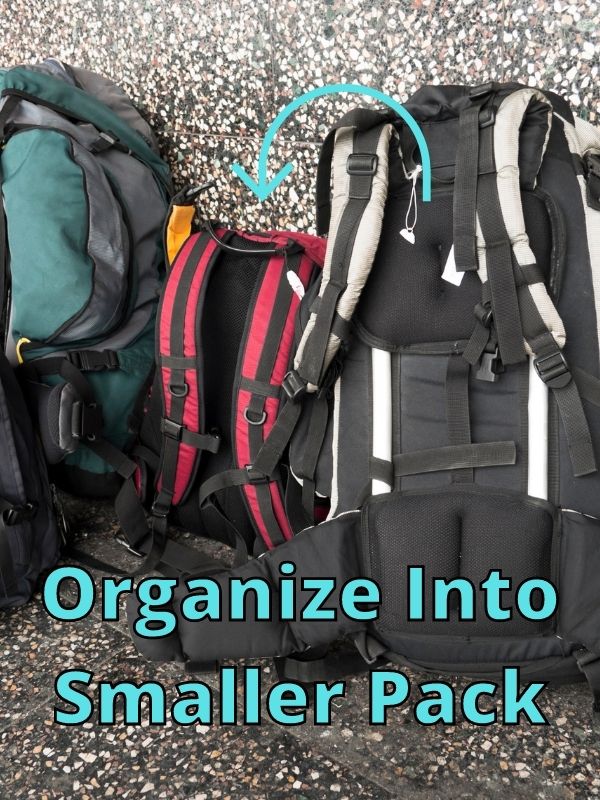
If you’ve whittled down your gear, gotten rid of the unnecessary add-ons, and swapped anything you can for lightweight versions, you’re still likely not quite finished with making your pack as light as possible.
One of the most important steps is to get all of your remaining items and divide them into three sections: keep, get rid of, replace. By doing this you can lay all of your items in front of you, and really ‘trim the fat’ and get rid of those few items that have managed to survive the cull so far.
After you’ve done this, pack everything in the bag itself and take it for a test drive. Wear it as you normally would, walk around, bend over, crouch – test whether it’s comfortable both in weight and shape. If it is, you’re good to go!
5. Use Multi-Purpose Items
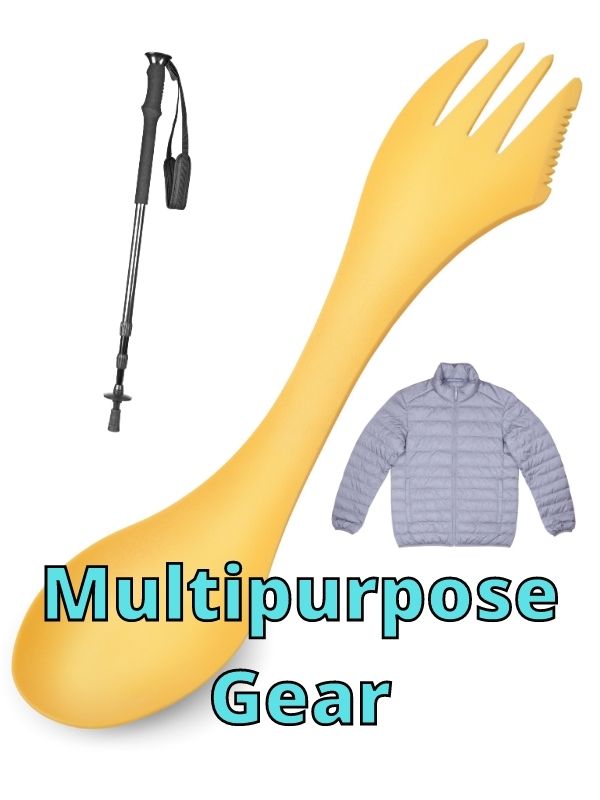
Although some items can only be used for one specific purpose, many – whether originally designed for it or not – can be used as multi-purpose items.
Maybe your jumper can be rolled up into a pillow? Or perhaps your swimming shorts can be used for running as well? Maybe the corner of your towel can replace your flannel?
Using single items for multiple purposes isn’t only convenient, it allows you to shed off those few extra grams to turn your backpack into an ultralight machine.
Final Thoughts
Although many people seem to have nailed down ultralight packing, for most, it isn’t easy and will be a gradual process that takes time. Shedding weight off your backpack is great, but you should never sacrifice comfort, safety, or usability to do this.
Reducing your first aid kit is one thing, but getting rid of it entirely is a bad idea. But it all boils down to this – if you don’t definitely need it, don’t bring it. And any of those items that seem to lie in between, don’t forget that you can always buy things when you’re out there, so if you’re really not sure, leave it at home.

